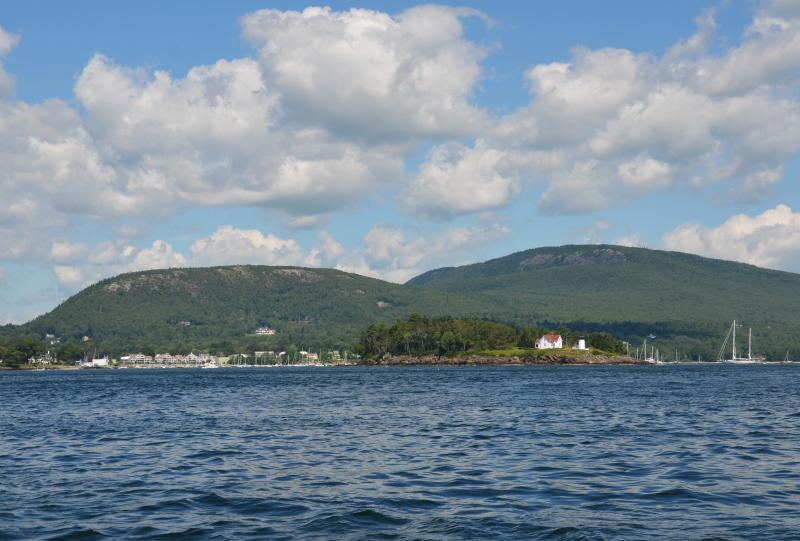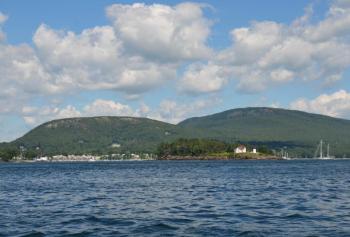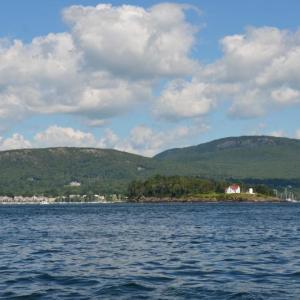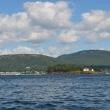Camden Select Board to discuss EMS contract, hold public hearing on extending pier moratorium
CAMDEN — The Select Board in Camden will consider again extending a moratorium on pier construction and placement in the outer and coastal harbor while the town continues to craft ordinance amendments governing such waterfront fixtures.
The board will convene Tuesday, Jan. 9, for a regularly scheduled meeting. The board will also discuss the town’s 2025 contract with North East Mobile Health Services, a privately owned ambulance service.
On Monday, Jan. 8, NEMHS met with Lincolnville’s Select Board to present a proposal for an increase of $491,821 to services currently in place. NEMHS is proposing an increase in payments by the towns effective July 1, representing an adjustment to a 2022 contract extension agreement.
NEMHS is based in Scarborough and has a division center in Rockport. From there, it offers ambulance and emergency medical services to Camden, Hope, Lincolnville and Rockport.
With the $491,821 increase to the current $403,887 contractual agreement, NEMHS hopes to cover its overhead and increase salaries to attract, “new talent and retain current staff,” the proposal said. “Staffing remains a challenge as locally employers increase salaries.”
“Due to changes in the EMS market, locally and regionally, at current projections, this division is estimated to lose approximately $700,000 in anticipated revenue during 2024,” the proposal said. “We have already taken steps to reduce company overhead by: “modifying staffing levels and shifting coverage focus on 911 response; reducing corporate overhead by reducing underutilized fleet units; merging Southern divisions into a single location.”
Moratorium extension
At the June 2022 Annual Town Meeting, Camden voters approved a six-month moratorium on building new piers and structures in Camden’s outer and coastal harbor area. The moratorium did not apply to the inner harbor.
The moratorium had been proposed in the wake of applicant requests for new pier construction. Concern rose over the density of docks, floats and ramps in the harbor.
In March 2023, the Select Board extended the moratorium for another six months, giving the town a new deadline of September 2023 to create new rules governing pier siting and construction.
The moratorium was again extended July 26, followed by Harbor Committee and Planning Board workshops addressing the matter. In November, some amendments were put before — and subsequently approved — by Camden voters; however, those amendments pertained to existing piers, focusing on pier height, maintenance and municipal review of site plans.
The moratorium on pier construction itself is due to expire on Jan. 21 unless the Select Board again extends it, which would be for the fourth time.
“ If the Board does not extend the Moratorium, the Moratorium would end, and the existing ordinance requirements and regulations along with the amendments that voters approved in November would apply,” wrote Camden’s Planning and Development Director Jeremy Martin, in a Jan. 4 memo to the Select Board.
“It is important to note that those amendments as they relate to piers only apply to existing piers. Another extension would provide additional time to amend the ordinance to have those recently approved amendments apply to new piers. In addition, the extension would provide additional time for the Planning Board review and proposed additional review criteria for new piers.”
Martin said he and Town Attorney Bill Kelly researched state law and concluded that municipalities can regulate the permitting of piers; “However, the state statutes start with the premise that provides shorefront property owners a conditional right to wharf a boat on such a pier or structure, and within it expressly authorizes the municipal officers to require permits and thereafter approve these structures after consideration of navigational safety and other general health, safety and welfare, environmental and wildlife preservation needs.”
Martin included case law (Anthony Uliano vs. Board of Environmental Protection, 2009) in the meeting packet, which references State Statute Title 38, Chapter 3. Martin emphasized in his memo the need for detailed review criteria of any municipal ordinance.
“As the review criteria must be rational and appropriate, I have advised the Planning Board to review the impacts and concerns that prompted their inquiry about a prohibition on piers, and then review the existing criteria to see if those criteria adequately address their concerns,” wrote Martin. “The Planning Board is in the early stages of reviewing other town’s ordinances and review criteria. In addition, they will be reviewing the State’s Natural ResourceProtectionAct’s review criteria, as well as the review criteria of the Army Corps of Engineers.”
At the Jan. 9 meeting, the Select Board must consider whether the problem giving rise to the moratorium still exist, and whether reasonable progress is being made to alleviate the problem behind the moratorium.
Martin recommended that the Select Board, “finds that based on the evidence presented in this memo and at the hearing that the problem giving rise to the moratorium still exists and that reasonable progress is being made to alleviate the problems that gave rise to the moratorium, and the Select Board should vote to extend the moratorium for another 180 days.”
























